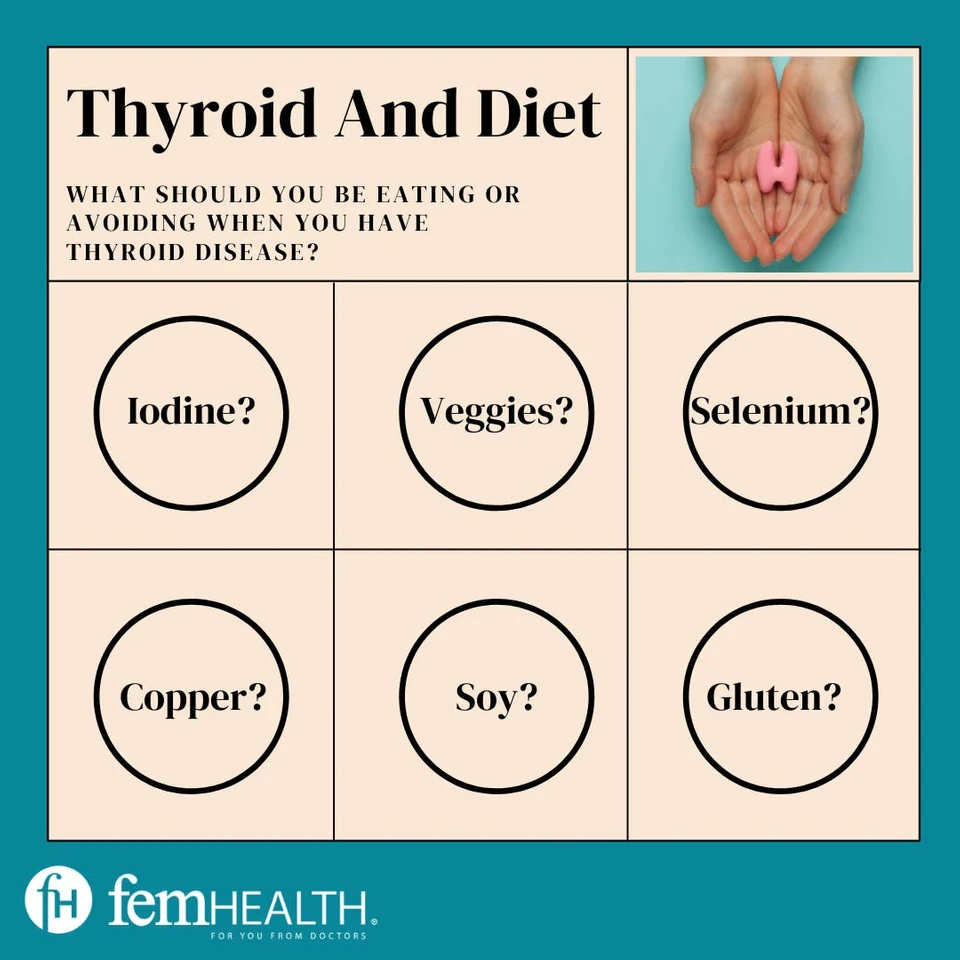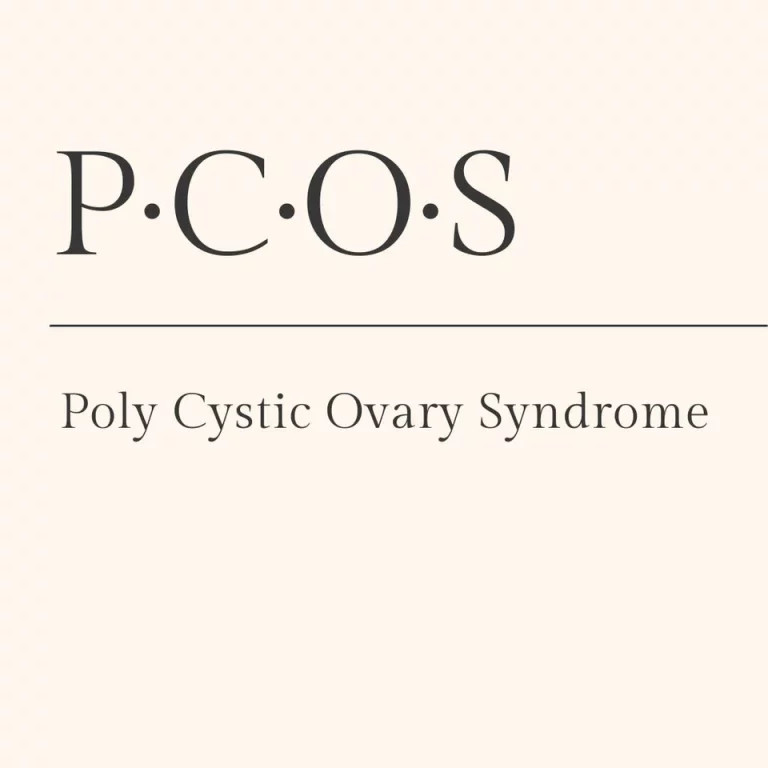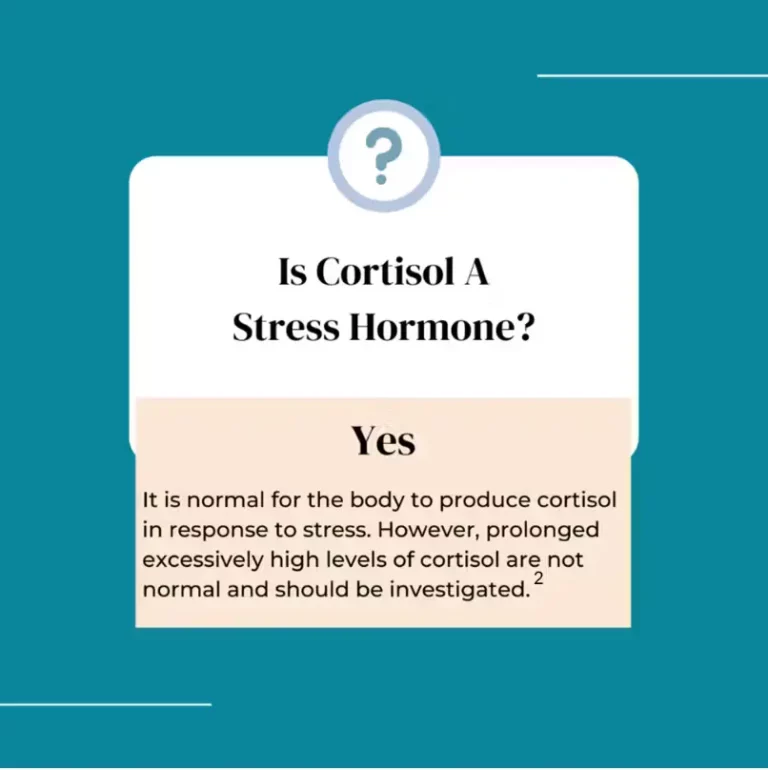Thyroid Diet And Nutrition
What Food Should I Avoid If I Have Thyroid Problems?
Many people wonder what kind of foods they should eat or avoid when they have thyroid diseases. Is it okay to eat iodized salt? Should soy products be avoided? What about cruciferous vegetables? Here are the evidence based answers to these questions:
What Is The Thyroid?
The thyroid is a small butterfly-shaped gland located in the front of the neck. It produces and secretes thyroid hormones that can help control how your body uses energy. Since every part of the body uses energy, thyroid hormone plays an important role in the function of almost every organ, including the heart, brain, liver, kidneys, and skin (1).
Iodine Benefits
Why is iodine important for the thyroid?
Iodine is used by the thyroid gland’s cells to make the thyroid hormones (T3 and T4) that circulate in your body. The body cannot make iodine on its own, so it is an essential part of the diet (1).
How much iodine per day should you have?
The daily recommendation for iodine intake is 150 micrograms (mcg) per day for adults, 220 mcg for pregnant women, and 290 mcg for breastfeeding women. The average American diet already contains 300 mcg of iodine/day (2). Iodine is difficult to identify in foods, since the amount of iodine in a food is not included on nutrition labels in the United States. According to the American Thyroid Association (1), iodine can be found in varying amounts in:
- Cheese
- Cows milk
- Eggs
- Frozen Yogurt
- Ice Cream
- Iodine-containing multivitamins
- Iodized table salt
- Saltwater fish
- Seaweed (including kelp, dulce, nori)
- Shellfish
- Soy milk
- Soy sauce
- Yogurt
Iodine Deficiency
People who do not use iodized salt, pregnant women (due to a higher requirement for iodine), vegans, those who eat less dairy products/seafood/eggs, people living in regions with iodine deficient soils (the Himalayas, Alps, Andes, and river valleys in South and Southeast Asia) (2).
***Important note: It is important to not take too much (more than 1,100 mcg/day) iodine, especially with susceptible glands. Too much iodine in people with hypothyroidism, such as Hashimoto’s thyroiditis, can lead to worsened hypothyroidism. Too much iodine in folks with hyperthyroidism, such as Grave’s disease, can lead to worsened hyperthyroidism (1).
Cruciferous Vegetables: Broccoli, Cabbage, Kale And More
Broccoli, cabbage, brussels sprouts, kale, turnips, cauliflower, and collard greens are all in the cruciferous vegetable family.
Although eating vegetables in this family may interfere with thyroid hormone synthesis (the body’s creation of thyroid hormone), the amount matters! If you eat these veggies raw, in high amounts such as 1-1.5 kg/daily for months, then yes, they will have an effect. Also, remember that cooking these vegetables degrades the glucosinolates that interfere with thyroid hormone synthesis.
The verdict?
Related: Thyroid Symptoms In Female – Underactive Vs Overactive
Recent studies show that there is no need to stop eating these healthy foods, which also provide many other essential nutrients. To quote a study: “in fact, consuming these foods as part of a varied, colorful, plant-based diet should not pose significant risks in healthy individuals, and, conversely, may be of great benefit. In addition to beneficial glucosinolates, cruciferous vegetables provide a plethora of other health-promoting phytochemicals, fiber, and essential vitamins and minerals.” (3)
Soy And Thyroid
Dietary soy products contain phytoestrogens, which have estrogen-like effects. Isoflavones can inhibit the action of thyroid peroxidase, leading to decreased thyroid hormone production.
The verdict?
Studies have shown that high consumption of soy products showed either no effects at all, or very modest changes in thyroid function of trial participants (4). So normal consumption of soy products is generally safe!
Selenium Benefits
Selenium is a micronutrient that is important for thyroid hormone metabolism. Intake varies depending on global location due to variations in the soil content of selenium. It is obtained mainly through meat, seafood, grains, and brazil nuts. The recommended daily intake is 55 mcg, and the tolerable upper intake level is 400 mcg/day (5).
The verdict?
In folks with Grave’s disease, selenium supplementation has occasionally led to faster remission of thyroid disease and improved quality of life (5).
Gluten And Thyroid
Hashimoto’s autoimmune thyroid disease is often accompanied by Celiac disease. Celiac disease is an autoimmune disease that results in gluten intolerance (6).
The verdict?
A gluten free diet may bring clinical benefits to women with autoimmune thyroid disease, but more evidence is still needed to support this claim (6).
Zinc, Copper, Magnesium
Supplementing with zinc, copper, or magnesium is not supported by enough scientific evidence to be helpful in patients with thyroid disease. The normal daily values of these are recommended.
- https://www.thyroid.org/iodine-deficiency/
- https://ods.od.nih.gov/factsheets/Iodine-Consumer/
- Petroski W, Minich DM. Is There Such a Thing as “Anti-Nutrients”? A Narrative Review of Perceived Problematic Plant Compounds. Nutrients. 2020;12(10):2929. Published 2020 Sep 24. doi:10.3390/nu12102929
- Messina M, Redmond G. Effects of soy protein and soybean isoflavones on thyroid function in healthy adults and hypothyroid patients: a review of the relevant literature. Thyroid. 2006 Mar;16(3):249-58. doi: 10.1089/thy.2006.16.249. PMID: 16571087.
- Winther, K.H., Rayman, M.P., Bonnema, S.J. et al. Selenium in thyroid disorders — essential knowledge for clinicians. Nat Rev Endocrinol 16, 165–176 (2020). https://doi.org/10.1038/s41574-019-0311-6
- Krysiak R, Szkróbka W, Okopień B. The Effect of Gluten-Free Diet on Thyroid Autoimmunity in Drug-Naïve Women with Hashimoto’s Thyroiditis: A Pilot Study. Exp Clin Endocrinol Diabetes. 2019 Jul;127(7):417-422. doi: 10.1055/a-0653-7108. Epub 2018 Jul 30. PMID: 30060266.
We discuss products we think are useful to people. If you buy something through our links, we may earn a commission. Remember to check with your personal physician to see if a product recommended is right for you.








